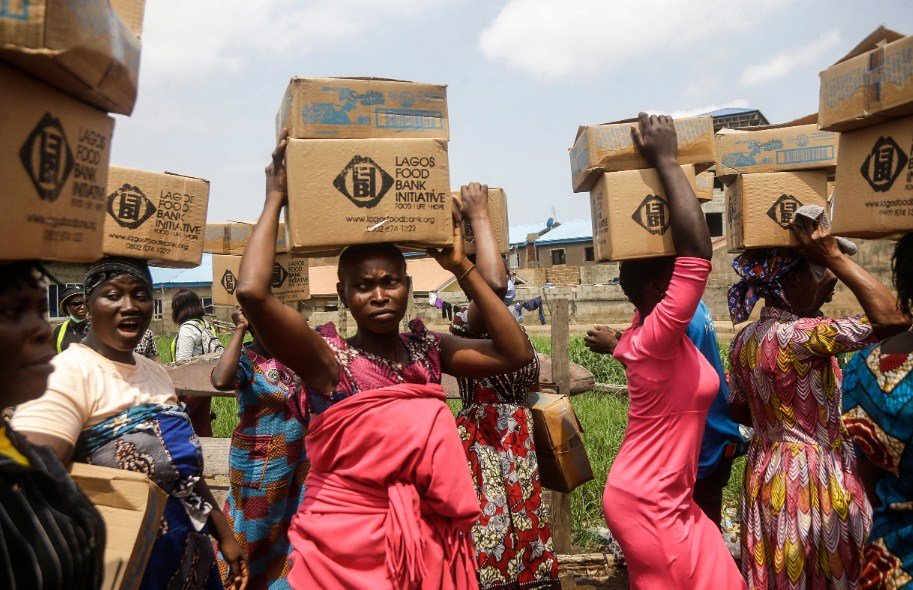The Gauteng Department of Social Development (DSD) has failed to replenish the food banks that provide essential relief to the most vulnerable residents of the province. This has sparked outrage and concern among civil society and opposition parties, who fear that thousands of people will face starvation and malnutrition during the festive season.
DA slams DSD for incompetence and lack of planning
The Democratic Alliance (DA), the official opposition party in Gauteng, has accused the DSD of incompetence and lack of planning, after conducting oversight inspections at the Ekurhuleni and Tshwane food banks and finding them empty. The DA said that it had received numerous complaints from vulnerable Gauteng residents who depend on the food banks for their survival.
Refiloe Nt’sekhe, the DA Gauteng Shadow MEC for Social Development, said that the situation was unacceptable and demonstrated the failure of the DSD to fulfil its mandate. She said that the DSD had not provided any explanation or contingency plan for the food crisis, and that the Gauteng MEC for Social Development, Mbali Hlophe, should be held accountable.

Nt’sekhe said that the DA would write to Hlophe to ascertain why the food banks had run out of stock, when the stock would be available, and whether there were any alternative measures to ensure that residents dependent on food banks had access to food.
Food banks were meant to bridge the poverty gap
The food banks were established in 2020, at the height of the Covid-19 pandemic, to bridge the poverty gap and ensure that no one went to bed hungry, especially at the time when the country was in hard lockdown and many people lost their means of income. The food banks were supposed to distribute food parcels to various non-governmental organisations (NGOs) and community-based organisations (CBOs) that work with the poor and vulnerable.
However, the food banks have been plagued by mismanagement, corruption, and inefficiency, as well as the impact of the economic downturn and the rising cost of food. According to the DSD, the food banks had distributed over 1.2 million food parcels since their inception, but this was not enough to meet the growing demand and need.
The DSD also admitted that it had faced challenges in procuring food from suppliers, due to the global supply chain disruptions caused by the pandemic. The DSD said that it was working on securing more food from local producers and cooperatives, as well as from the national government and the private sector.
People living with chronic illnesses are the most affected
The food crisis has a devastating impact on the health and well-being of the people who rely on the food banks, especially those living with chronic illnesses, such as HIV/AIDS, tuberculosis, diabetes, and hypertension. These people need nutritious food to take their medication and to boost their immune systems.
However, without the food banks, they are left with no choice but to skip their medication or to take it on an empty stomach, which can have serious consequences for their health. Some of them have resorted to begging, scavenging, or selling their belongings to buy food.
One of the affected people is Thandiwe Mkhize, a 45-year-old woman from Tembisa, who lives with HIV and diabetes. She said that she had not received a food parcel from the DSD since October, and that she had been struggling to feed herself and her three children.
“I don’t know what to do. I have no money, no job, no food. I have to take my pills every day, but I have nothing to eat. Sometimes I just drink water and hope for the best. I am afraid that I will die and leave my children alone,” she said.
Civil society calls for urgent intervention and support
Civil society organisations that work with the poor and vulnerable have called for urgent intervention and support from the government and the public to address the food crisis. They have urged the DSD to replenish the food banks as soon as possible, and to improve its management and accountability.
They have also appealed to the public to donate food, money, or time to the NGOs and CBOs that distribute food to the needy. They have said that every contribution, no matter how small, can make a difference in someone’s life.
One of the organisations that is involved in the food relief efforts is Gift of the Givers, a humanitarian organisation that provides disaster relief and social development services. The organisation said that it had been inundated with requests for food assistance from various communities in Gauteng, and that it had been trying to meet the demand with its own resources and donations.
Dr Imtiaz Sooliman, the founder and chairperson of Gift of the Givers, said that the food crisis was a national emergency that required a collective response. He said that the organisation was willing to work with the DSD and other stakeholders to ensure that no one went hungry.
“We are all in this together. We cannot turn a blind eye to the suffering of our fellow human beings. We have to act now, before it is too late. We have to share what we have, and show compassion and solidarity. We have to restore the dignity and hope of our people,” he said.
